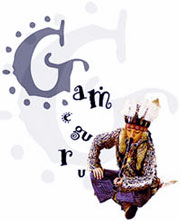Neverwinter Nights 2 Preview + Trailer - preview/review
(hx) 05:23 PM CEST - Aug,14 2006
- Post a comment / read (2)
 The chaps over at
IGN have
posted their impressions of
Neverwinter Nights 2,
the upcoming RPG sequel. Here's an excerpt:
The chaps over at
IGN have
posted their impressions of
Neverwinter Nights 2,
the upcoming RPG sequel. Here's an excerpt:
In addition to each characters having different skills, they'll also have varying alignments and backstories. Active party members will interact with each other through dialogue, and should your actions veer too much from their personal philosophies or alignment, they might leave the party altogether. By performing deeds that agree with your party members' personal philosophies, players gain influence over them. High levels of influence with party members means they'll be willing to perform actions not otherwise possible. Chris related an example of a scenario where your character is forced into a dual. Assuming you're a wizard and the opponent has an obvious advantage because of his armor or skills, it's clear you'll get murdered if you head into the fight. With a high influence over party members, one with a more suitable class and skill set would volunteer to take your place.
Obviously, the fully controllable NPC party members are more than just cardboard characters. They all have something to say and underlying motivations, though these aren't necessarily made obvious right away. Characters will initially decline to talk about themselves or their deeper world views. Once you've traveled with them for a while and built up some trust, they'll reveal more. Special items in the game also have their own histories, which can be read by clicking on an examine tab in the menu.
In other news, here's a new
Neverwinter Nights 2 trailer (36.5MB). Also
Gamespot has recently uploaded four gameplay movies from a demo at GenCon
and updated their
impressions article.
|
 Updated:10:18 AM CET Jan,12
(new)
Updated:10:18 AM CET Jan,12
(new)
